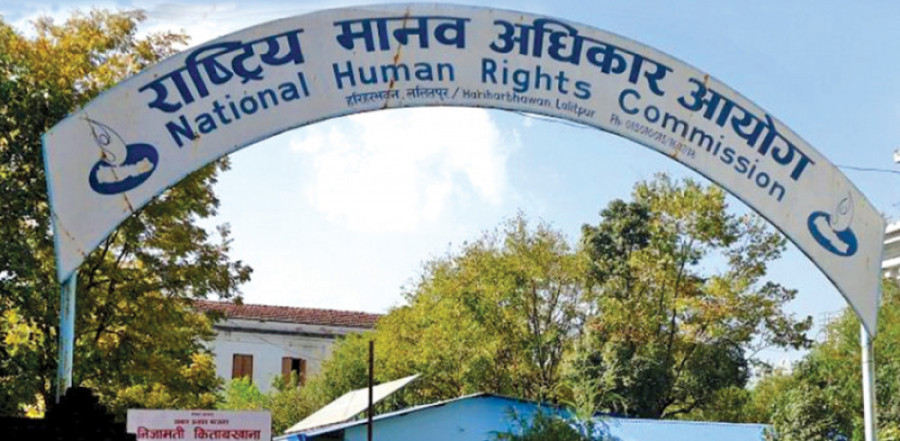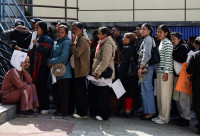National
Over 800 cases mired in delay at human rights commission
Officials blame misplaced priorities while commissioners cite focus on transitional justice, upcoming conference.
Binod Ghimire
The implementation of the National Human Rights Commission’s recommendations has traditionally been dismal, with successive governments fully implementing no more than 15 percent of its recommendations.
However, the constitutional human rights watchdog’s own performance in resolving cases is equally dismal. The commission has a separate department to investigate complaints, which forwards them to the office bearers for action.
The five-member commission is responsible for determining penalties and making necessary recommendations to the government for compensation or legal action. However, hundreds of cases that have been fully investigated remain unresolved due to the indecision of the office bearers.
As per the commission’s 2022/23 annual report, a total of 1402 cases that were investigated are awaiting final decisions. “The commission settled 500-600 cases in the previous fiscal year. Still 800-900 cases are still pending,” Shyam Babu Kafle, who was the chief of the investigation division until last month, told the Post. “The busy schedules of office bearers and a large volume of cases are to blame.”
However, at least three senior officials told the Post that the real problem is the office bearers getting their priorities wrong. “There has not been a single meeting to decide cases since the start of the current fiscal year,” a senior official told the Post. “Not all commissioners are interested in studying cases because it is a tedious process. They prefer other tasks.”
A month and a half has passed since the commencement of the current fiscal year on July 16.
The commissioners, however, don’t buy the claim. They assert that making proper decisions on the investigated cases is their priority. Commissioner Surya Dhungel said they have rigorously studied and decided such cases.
“Of late we were more focused on transitional justice issues. So there was less focus on deciding other cases. Also, now the commission is preparing for an international conference,” Dhungel told the Post. “We plan to get back to deciding cases once the conference ends.”
The commission, in collaboration with the Asia Pacific Forum, is organising an International Conference on Gender Inclusiveness, which is set to begin on September 3.
“Many of these cases are complex and political in nature, which needs to be decided after thorough study. It is time-consuming,” said Dhungel.
Officials said that until the start of the current fiscal year, the commission had prepared a plan to decide the cases three days a week—Sunday, Tuesday, and Thursday. However, this schedule was often disrupted due to foreign trips and regional office monitoring visits by the chief commissioner and other commissioners.
Most of the cases awaiting decisions are related to the Maoist insurgency (1996-2006). Similarly, others involve rape, torture, and social-economic rights, according to Manju Khatiwada, chief of the commission’s investigation division.
Not just the commission delayed deciding the cases that have been investigated, it has sluggish progress even in investigating the cases. Of over 14,000 cases registered with the comission, decisions have been made only in around 19,000 cases so far.
According to the Commission’s data, 15.3 percent of the recommendations have been wholly implemented by the government and 39.2 percent of the recommendations have been partially implemented. The remaining 45.5 percent of the recommendations have not been implemented at all. The recommendations implemented are often in the nature of providing compensation. The recommendations to take legal action against those involved in human rights violations and investigate the incident and take legal action have not been implemented, according to the commission.




 22.17°C Kathmandu
22.17°C Kathmandu














